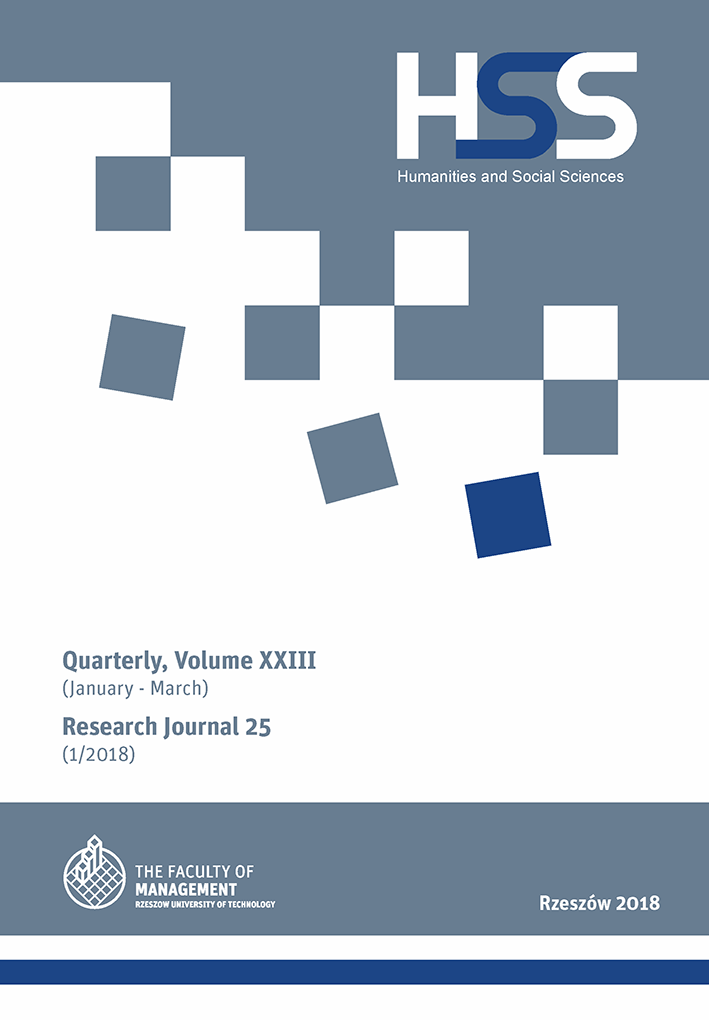Abstract
International population migrations are among the contemporary cultural and civilizational phenomena which attract the special attention of the public opinion. Mass migrations have brought with them real and potential changes in both sending and receiving countries. This phenomenon is multifaceted and has been the subject of research by representatives of many disciplines. One of the contemporary issues that affects the ethical plane is the phenomenon of multiculturalism, the "other" issue in our culture often defined as "foreign". Binary thinking has left a special mark on the reflection on "otherness", the debate has been going on for many years according to the dichotomous division: me - the stranger, me - the other. This dichotomy has particularly significant consequences at the level of ethical considerations. The aim of the article is a brief analysis of the issues of multiculturalism and migration in ethical terms. I would like to refer to the philosophy of dialogue, to the texts of Levinas and Tischner, where one can directly find the ethical analysis of this issue. The guiding thought of this text are the words of Józef Tischner. “It would not be my being in a world without the Other, without a word that guides me and shows me things. The world that surrounds me is a great gift of speech, assuming the presence of the Second”[1] and Levinas “If the other looks at me, I am responsible for him, even if in his eyes I have not made any commitments”.
References
Agamben G., Homo sacer. Suwerenna władza i nagie życie, Warszawa 2008.
Bauman Z., O tarapatach tożsamości w ciasnym świecie, ER(R)GO. Teoria–Literatura–Kultura 2003, nr 1 (6).
Kant I., Uzasadnienie metafizyki moralności, tłum. M. Wartenber, Kęty 2001.
Kłoczowski J.A., Filozofia dialogu, Poznań 2005.
Kołakowski L. Czy diabeł może być zbawiony i 27 innych kazań, Kraków 2006.
Krawczyńska D., Tożsamość według Lévinasa, „Twórczość” 1997, nr 7.
Levinas E., Etyka i Nieskończony: rozmowy z Philippem Nemo, tłum. B. Opolska-Kokoszka, Kraków 1991.
Levinas E., Całość i nieskończoność: esej o zewnętrzności, tłum. M. Kowalska, Warszawa 1998.
Monteskiusz, Listy Perskie, tłum. T. Boy-Żeleński, Warszawa 1979.
Quinzio S., Hebrajskie korzenie nowożytności, tłum. M. Bielawski, Kraków 2005.
Tischner J., Myślenie według wartości, Kraków 2002.
Tischner J., Inny. Esej o spotkaniu, Kraków 2017.
Żardecka-Nowak M., Relacja między etyką a polityką w kontekście filozofii Emmanuela Lévinasa, „Filozofia Dialogu” 2003, t. 1.
http://filozofuj.eu/wp-content/uploads/2015/09/Fi_1d_2015_09_10_v3.pdf [5.10.2017].
http://www.isp.org.pl/aktualnosci,1,1612.html [18.10.2017].
http://uchodzcy.info/infos/mity-i-fakty/ [25.10.2017].
http://krytykapolityczna.pl/kraj/czy-imigranci-sa-nam-kulturowo-obcy/ [18.10.2017]
http://openborders.info [30.09.2017].

